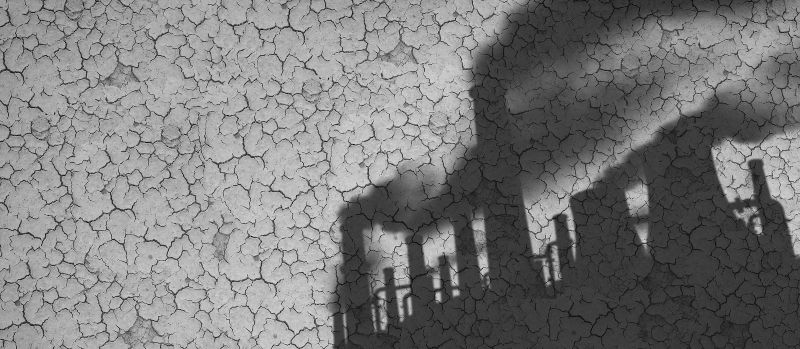The USA and Australia fail on climate change
April 30, 2023
Nearly two years ago relief was expressed that the USA had emerged under President Biden to offer world leadership on climate change. Sadly this leadership has been a disappointment and today both the US and other high emitters such as Australia are not on track to meet the challenge.
Current oil, gas and carbon capture and storage (geological) developments in the US and Australia ignore the accepted science that no new oil and gas fields can be developed without compromising the target to limit the temperature rise to 1.5 degrees.
In Australia it became apparent at the last election that the government to-be had adopted a climate policy of swimming between the red flags, a policy of safety from attack by the Opposition, News Corp media and the powerful gas industry – sharks with very sharp teeth swimming just outside the red flags.
In the policy the 2030 domestic emission reduction target was increased from 40 to only 43 percent still about half of that required. The USA had already set a goal of reducing emissions by 50 to 52 percent by 2030.
Australia is developing several huge gas fields for export of gas which will have a significant effect on world emissions. One example is the Beetaloo onshore shale gas development which has questionable health and environmental assessments but approval seems imminent.
The US government climate policy is also adhering to the safety of the red flags by approving the Willow project in Alaska - which will extract 600 million barrels of oil from pristine Federal land. Apparently President Biden felt bound to approve it or he might run into legal difficulties with the oil company ConocoPhillips! Certainly the development was supported by the electorate in Alaska with the promise of more jobs.
However environmental groups say the Willow project carries significant environmental threats to freshwater sources, migratory birds, caribou, whales and other animals that inhabit the region. Clearly the Biden administration is not paying attention to environmental needs which are of equal importance to climate change.
In addition, the President has approved nearly 100 more oil and gas drilling leases than Donald Trump had at the same point in his presidency.
All these approvals have essentially negated any chance of international leadership on climate change despite President Bidens Inflation Reduction Act passed by Congress last year containing much-needed Federal aid for clean energy development.
The insecurity engendered by US policy is further fomented by the promotion of Carbon Capture and Storage (CCS) projects. The President has provided $2.5 billion for CCS with Republican support and compromise is evident with companies that want to preserve markets for natural gas.
In the minds of government and industry carbon capture and storage is the answer to the continued development of fossil fuels. This is an appalling mistake because CCS is inefficient, and emissions will nevertheless increase.
An Australian study by the the Institute for Energy Economics and Financial Analysis of 13 major CCS projects around the world found technology and regulatory frameworks wanting and there was inadequate removal of emissions.
Of the 13 large-scale projects, seven underperformed, one was questionable, and only two projects in Norway, in gas processing, demonstrated success,
The study found that Shute Creek in the US underperformed its carbon capture capacity by around 36% over its lifetime, Boundary Dam in Canada by about 50%, and the Gorgon project off the coast of Western Australia by about 50% over its first five-year period.
These outcomes are unacceptable when fossil fuel emissions must be curtailed now, not in a year or 5 years, but now.
In Australia, approval for imminent large gas projects requires an expectation of concomitant CCS. The governments Climate Change Authority has issued a report which can be seen as supporting an uncritical report on CCS from CSIRO. For example, the Authority states that the Gorgon project reduced emissions in 2020 by around 3 Mt CO2 but fails to mention that an equal amount was discharged into the atmosphere. Then, in the 12 months to June 2022, just 1.6 million tonnes of CO2 went underground and 3.4 million tonnes was vented into the atmosphere.
It seems likely that some of the wording in the recent IPCC report is being used to promote CCS - Net zero CO2 energy systems entail: a substantial reduction in overall fossil fuel use, minimal use of unabated fossil fuels, and use of carbon capture and storage in the remaining fossil fuel system. These words can be read many ways!
It appears that Saudi Arabia insisted CCS be included in the IPCC report and this has been capitalised by other large oil and gas producing nations.
The gas bomb has now arrived from US, Australia and many other producing countries. What hope is there for leadership?
China is the greatest emitter of carbon emissions. Like the US it is developing more fossil fuel resources and at the same time greatly expanding its renewable energy program. It is essential that the US and China stop vying for economic leadership, talk and work together.
If this doesnt occur, China may come to see itself as the leader on climate change for it can make decisions without political prevarication and this brings into question democratic governance which can be seen as useless if it cannot address the greatest threat humanity has ever faced.

